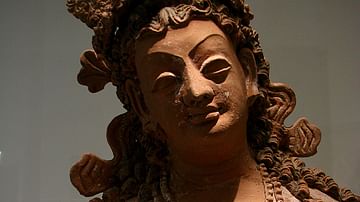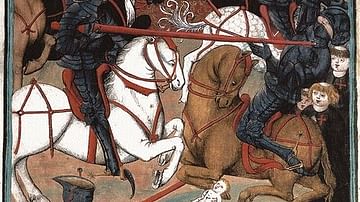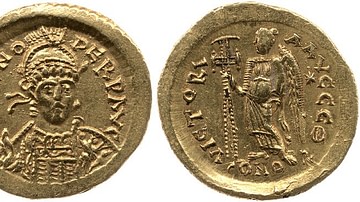Search
Remove Ads
Advertisement
Summary 
Loading AI-generated summary based on World History Encyclopedia articles ...
Search Results

Video
Muslim Schism: How Islam Split into the Sunni and Shia Branches
Kings and Generals historical animated documentary series on the early history of Islam, as we discuss the events that led to the schism within the Muslim community, as Islam split into two branches - Sunni and Shia Islam. This happened in...

Definition
Mahasanghika
Mahasanghika (“Great Congregation”, also given as Mahasamghika) was an early Buddhist school of thought which is thought to have been formed after the Second Buddhist Council of 383 BCE when it separated itself from another school, the Sthaviravada...

Definition
Mauretania
Mauretania was an ancient kingdom in northwest Africa, encompassing regions of modern-day Morocco and Algeria. Although it shares a name with the modern country of Mauritania, they do not overlap. Ancient Mauretania was named after the Mauri...

Definition
Hussite Wars
The Hussite Wars (1419 to c. 1434) were a series of conflicts fought in Bohemia (modern-day Czech Republic) between followers of the reformer Jan Hus and Catholic loyalists toward the end of the Bohemian Reformation (c. 1380 to c. 1436...

Definition
Buddhism
Buddhism is a non-theistic religion (no belief in a creator god), also considered a philosophy and a moral discipline, originating in the region of modern-day India in the 6th and 5th centuries BCE. It was founded by the sage Siddhartha Gautama...

Definition
John Wycliffe
John Wycliffe (l. 1330-1384, also John Wyclif) was an English theologian, priest, and scholar, recognized as a forerunner to the Protestant Reformation in Europe. Wycliffe condemned the practices of the medieval Church, citing many of the...

Definition
Jan Hus
Jan Hus (also John Huss, l. c. 1369-1415) was a Czech philosopher, priest, and theologian who, inspired by the work of John Wycliffe (l. 1330-1384) challenged the policies and practices of the medieval Church and so launched the Bohemian...

Definition
Civil Constitution of the Clergy
The Civil Constitution of the Clergy was a law passed in July 1790 during the French Revolution (1789-1799), which caused the immediate subordination of the Catholic Church in France to the French government. An attempt to modernize the Church...

Definition
Emperor Zeno
Zeno was Byzantine emperor from 474 until 491 CE. An ethnic Isaurian, Zeno was repeatedly criticized as an outsider during his reign, which was full of rebellions and attacks by the Ostrogoths. He is best known for his failed attempt to compromise...

Definition
Robert Cushman
Robert Cushman (l. 1577-1625 CE) was an author, lay preacher, and member of the Leiden congregation of separatists (later known as the pilgrims) who negotiated passage for them from the Netherlands to North America in 1620 CE aboard the Mayflower...